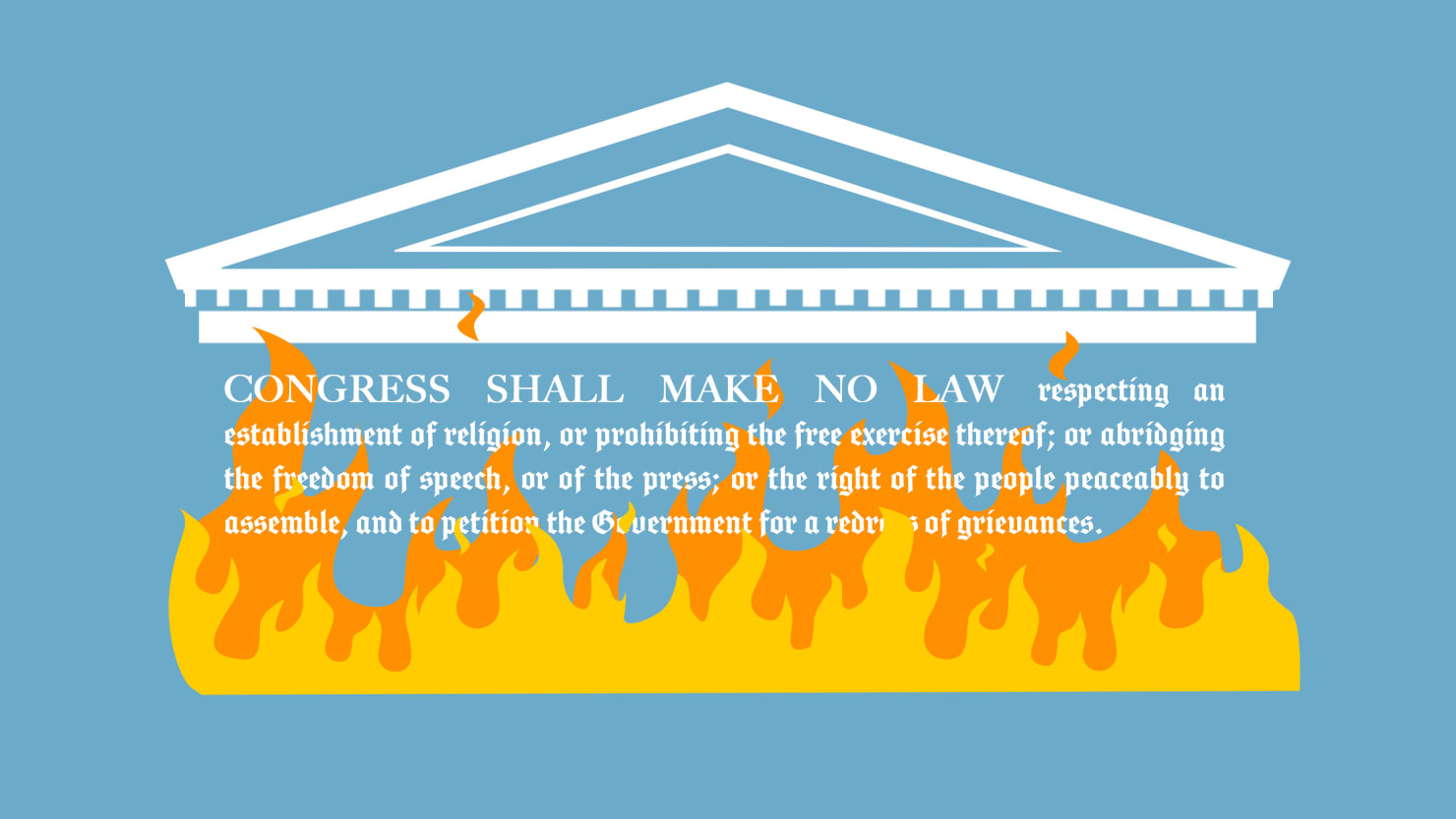It is dicey constitutional business to criminalize words. The courts have done so only in exceptional circumstances, but on April 19, 2023, the Supreme Court will re-examine the constitutional boundaries for criminalizing words that terrorize. On that date, the Court will hear argument in Counterman v Colorado; the case focuses on the true threats doctrine and the right of speakers to invoke First Amendment protection for speech that puts the target in fear of life or limb.
Beginning in 2014, and over the next two years, Billy Raymond Counterman posted dozens of messages on the Facebook page of a local Colorado musician. The posts, sometimes accompanied by pictures, clearly indicate a man obsessed with his target:
“Was that you in the white Jeep?”
“I’ve had tapped phone lines before. What do you fear?”
“I’m currently unsupervised. I know, it freaks me out too, but the possibilities are endless.”
“How can I take your interest in me seriously if you keep going back to my rejected existence?”
“Fuck off permanently.”
“Your arrogance offends anyone in my position.”
“You’re not being good for human relations. Die. Don’t need you.”
“Staying in cyber life is going to kill you. Come out for coffee. You have my number.”
The artist, identified in court documents as C.W., alerted law enforcement and was granted a protective order against Counterman. Finally, in May 2016, he was arrested. At trial, C.W. testified that she was alarmed by Counterman and afraid that he would injure or even kill her. In fact, she canceled a number of performances because she feared for her safety. In 2021, Counterman was convicted of stalking C.W. and was sentenced to four-and-a-half years in prison.
Counterman appealed his conviction defending his Facebook posts as pure speech, which are protected against criminal prosecution by the First Amendment. The state appeals court found that, in context, the posts indicated Counterman felt entitled to C.W.’s attention not just online but in person as well. Additionally, in his more agitated posts, the court found that Counterman evidenced a disregard for his victim’s life. The state court upheld the conviction and ruled the posts were true threats, unprotected by the First Amendment.
True threats are one of only a very few categories of speech to which the First Amendment offers no sanctuary. The First Amendment requires tolerance of fear and hate. The constitutional philosophy undergirding the First Amendment is that the best remedy to bad speech is more speech. The courts have been careful to allow speakers breathing space so that expression of thoughts and ideas have wide berth in the marketplace of ideas—that they are subject to debate and critique in the hopes that false narratives fail to thrive. Of course, it is a somewhat naive view. In fact, particularly in this era of siloed political communities, hate, misinformation, and disinformation thrive. Still, to punish such expression may not eliminate it; rather, it will often simply drive it underground.
The criminalization of true threat speech is not aimed at crude or offensive speech; it is not directed at vitriolic or hyperbolic speech. True threats are not merely language that intimidates or frightens. In fact, threatening language is often expressed during emotional confrontations, and while it might cause great anxiety or anger in the target, it falls short of terrorizing. The fear produced by a true threat is similar to the fear produced by a physically threatened assault. The target of a person waving a fist, a gun, or a knife will fear for their bodily safety. A true threat breeds the same kind of panic. So too, does the most venomous hate speech.
“Terrorizing speech does not add to the marketplace of ideas. Terrorizing speech forces the market to contract. ”
In Counterman’s final appeal of his conviction, the Supreme Court will have an opportunity to extend guidelines criminalizing true threats so that, at last, constitutional protection will be withdrawn from the most dangerous hate speech. Indeed, the court has supported prosecution against a speaker whose words incite illegal action, provokes another with fighting words, or defames another causing injury to reputation. In these circumstances, particularly when an individual is prosecuted for inciting illegal action, the court has crafted clear guidelines. A speaker can be punished for inciting a riot only if the speaker intended to incite a riot, choosing words that urge a crowd to illegal action in an incendiary situation and the speech is likely to incite the crowd to violence.
Guidelines similar to those used to criminalize speech that incites illegal activity can be applied to criminalize the worst kind of hate speech. Hate speech should be criminalized when the speaker intends to put the victim in fear of life or limb, choosing words that in context are terrorizing and likely to cause panic in the target. Doing so would not lead to big brother government control of expression so that only that which conforms to government orthodoxy enjoys first amendment protection. Instead, an extension of the true threat doctrine would withdraw first amendment armor only from the most heinous speech—that which generates terror. Placing menacing speech of any kind, including bullying, stalking or hate, outside of constitutional safeguards provides balance where little currently exists and offers the constitutional breathing room even to targets of hate so that they too can enjoy democratic liberties.
When speech has reached a level that is not tolerable in a civilized society, failure to delimit or encumber a speaker is more harmful than providing entrance to the marketplace of ideas. So that, when the remedy of more speech to bad speech is unavailable, or when expression is so menacing that its targets, like C.W., cannot enjoy the liberties that democracy provides, the government has the power, doubtless the responsibility, to step in and provide correctives. Terrorizing speech does not add to the marketplace of ideas. Terrorizing speech forces the market to contract. Intimidated targets are not going to participate in the marketplace of ideas for fear that the vitriol is merely the set up to real physical harm or death.
Concerns that, if they fear prosecution, the speech of haters and internet stalkers like Billy Raymond Counterman will be chilled so that they will refrain from tormenting their targets seems to be the whole point. Withdrawing constitutional protection and criminalizing speech that is intended to, and in fact does, elicit terror from the target is logical and fair. And it is about time.
Lynn Greenky is associate teaching professor at Syracuse University in the Department of Communication and Rhetorical Studies. She teaches a beloved undergraduate course about the First Amendment and is the author of the book When Freedom Speaks. You can follow her on Instagram @lynngreenky and Twitter @LGreenky.



